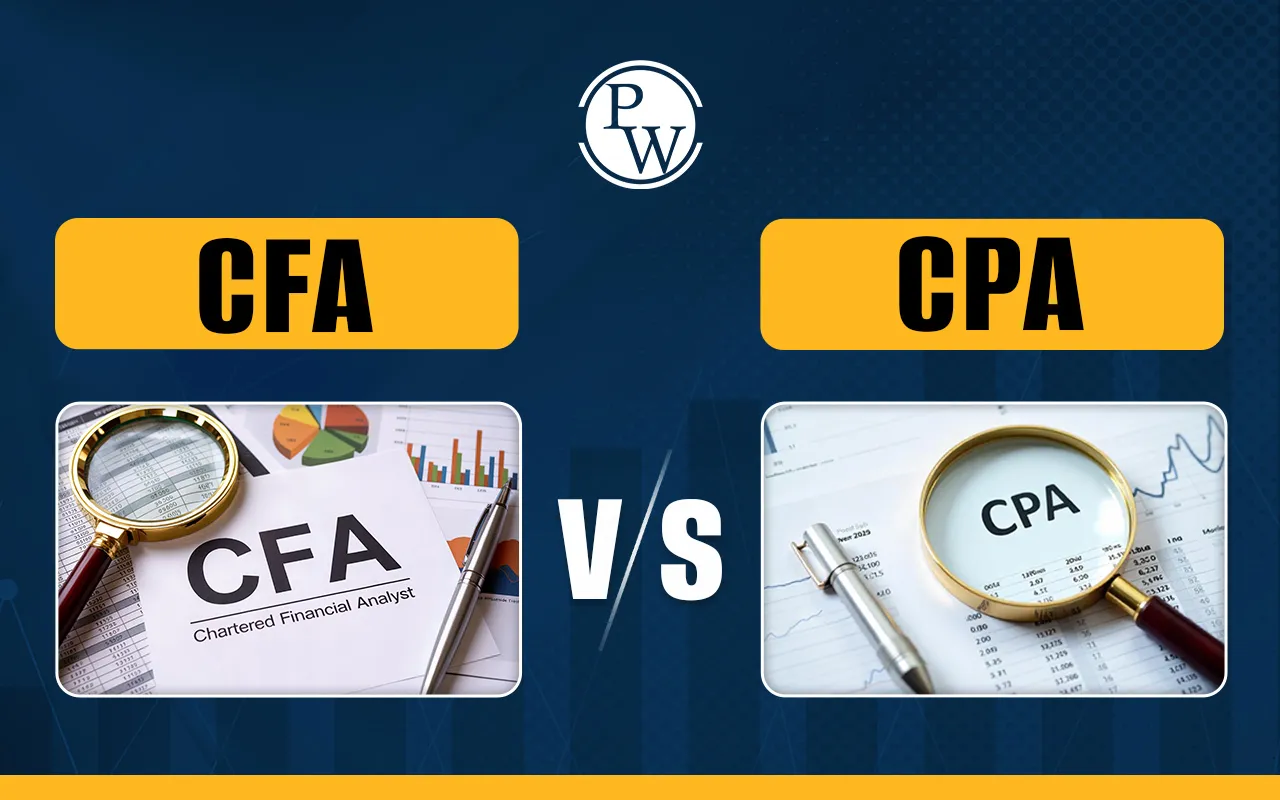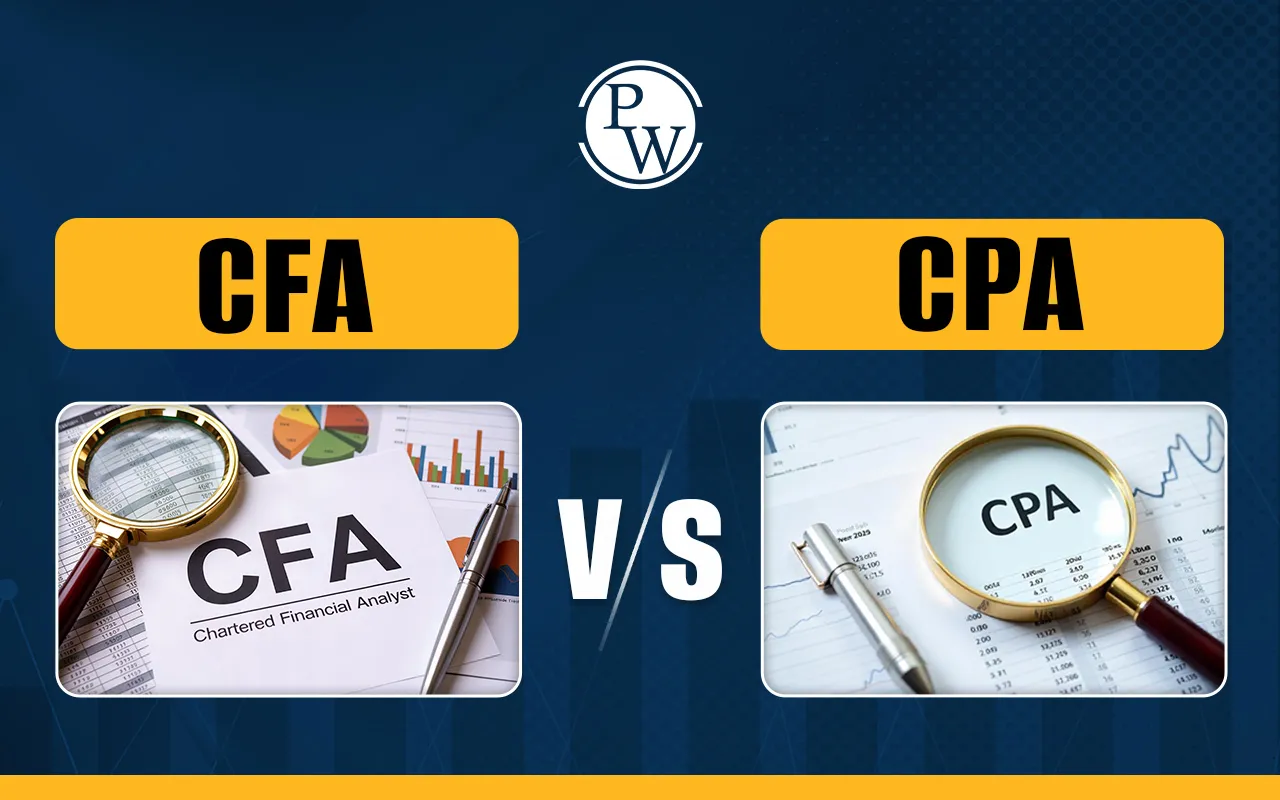
When considering a professional upgrade in the world of finance and accounting, two of the most prestigious designations that come to mind are CFA and CPA. These certifications offer a wealth of career opportunities, recognition, and credibility in their respective fields. But choosing between CFA vs CPA can be challenging, especially when both open doors to rewarding and intellectually stimulating careers.
In this article, we will explore what each designation entails, the pathways to earning them, differences in exams, career options, and more, helping you make an informed decision based on your professional aspirations.
What is a CFA?
A Chartered Financial Analyst (CFA) is a globally recognized designation awarded by the CFA Institute. It is primarily aimed at professionals interested in investment management, equity research, risk analysis, portfolio strategy, and related roles. The CFA curriculum emphasizes deep knowledge of financial analysis, ethics, economics, portfolio management, and quantitative methods.
What is a CPA?
A Certified Public Accountant (CPA) is a licensed professional accountant recognized for their expertise in accounting, auditing, taxation, and regulatory compliance. The CPA license is granted by individual state boards in the United States and is one of the highest standards of competence in accounting.
Also Check: How To Change Career To Accounting?
Key Differences Between CFA vs CPA
Although both are highly regarded, CFA vs CPA differ significantly in their focus and professional outcomes. The CPA credential is rooted in accounting principles and regulatory practices, while the CFA designation is centered around finance and investments. Choosing between the two depends on your career goals.
| Difference Between CFA and CPA | ||
| Aspect | CFA | CPA |
| Field of Expertise | Finance, investment strategies, portfolio management | Auditing, accounting, taxation |
| Industry Focus | Asset management firms, investment banks, and research institutions | Public accounting firms, corporate finance, and government roles |
How to Become a CFA
Understanding how to become a CFA is essential before embarking on the journey. Here's an outline of the steps involved:
Eligibility: A bachelor's degree or equivalent work experience is required.
Enroll in the CFA Program: You must register with the CFA Institute.
Work Experience: 4,000 hours of relevant experience over at least three years.
Exams: Pass three levels of the CFA Exam (Levels I, II, and III).
References: Submit 2-3 professional references.
Membership: Apply for regular membership with the CFA Institute.
The CFA Exam demands significant preparation. On average, candidates spend 300 hours per level.
How to Become a CPA
The process of how to become a CPA varies slightly by state but generally includes:
Education: Complete 150 credit hours of college coursework, including a bachelor's degree.
CPA Exam: Pass four exam sections – Auditing and Attestation (AUD), Financial Accounting and Reporting (FAR), Regulation (REG), and a discipline-specific section.
Experience: Complete 1-2 years of relevant accounting work.
Ethics Requirement: Some states require passing an ethics exam.
License Application: Apply through the state board of accountancy.
Also Check: Top Tax Preparer Interview Questions 2025
CFA vs CPA Exam Structure
The CFA vs CPA exam comparison highlights the differences in difficulty, structure, and study requirements.
CFA Exam:
-
Three levels: Level I (basic knowledge), Level II (application), Level III (portfolio management)
-
Mixed-format: Multiple-choice, vignette-based MCQs, and essays
-
Total estimated study time: 900 hours
CPA Exam:
-
Four parts: AUD, FAR, REG, and a discipline
-
Multiple-choice and task-based simulations
-
Total estimated study time: 320 to 420 hours
In general, the CFA exam has a lower pass rate and demands more hours of study per level.
CFA vs CPA Career Opportunities
Both certifications can lead to rewarding careers, but the nature of the roles varies considerably.
CPA Career Paths:
- Public accounting
- Internal auditing
- Tax advisory
- Financial reporting
- Forensic Accounting
CFA Career Paths:
- Investment banking
- Portfolio management
- Research analysis
- Risk management
- Wealth Advisory
In CFA vs CPA, your career interest plays a key role in determining which is more aligned with your aspirations.
Income Potential and Industry Demand
Both CFA and CPA holders enjoy enhanced career prospects and income growth. The demand for financial analysts and certified accountants continues to grow across industries.
While exact figures vary by region and experience, CFA charter holders generally have an edge in investment roles, while CPAs may find more opportunities in corporate and public accounting sectors.
Rather than focusing solely on pay, it’s important to evaluate which designation aligns better with your long-term career goals and interests.
CFA vs CPA: Which Should You Choose?
When it comes to deciding CFA vs CPA, ask yourself a few key questions:
- Are you more passionate about accounting and compliance (CPA) or finance and investment (CFA)?
- Do you prefer working with financial statements and taxation or analyzing market trends and investments?
- Are you aiming to work in corporate accounting, auditing, or public practice (CPA), or do you see yourself in asset management and finance (CFA)?
While both designations require time, effort, and financial investment, they offer specialized knowledge that sets you apart in a competitive job market.
There is no one-size-fits-all answer in the CFA vs CPA debate. Both designations command respect and open doors to prestigious roles. Your decision should ultimately depend on your professional interests, career goals, and the industries you want to be part of.
By thoroughly understanding what is a CFA and what is a CPA, you can assess which path aligns better with your aspirations. Whether your strength lies in auditing and tax preparation or in portfolio analysis and investment strategy, both credentials will serve as valuable assets throughout your career.
Build Your Career with a Certificate Program in Accounting, Taxation, and Finance
The objective of the Accounting and finance course is to provide you with the skills, information, and practical experience you need to succeed in the field of accounting. This four-month hybrid program, taught on weekdays in recorded and live lectures, contains practical case studies guided by PwC India.
CFA vs CPA FAQs
What is the primary difference in CFA vs CPA career paths?
How to become a CFA?
How to become a CPA?
Which exam is more difficult in CFA vs CPA?














